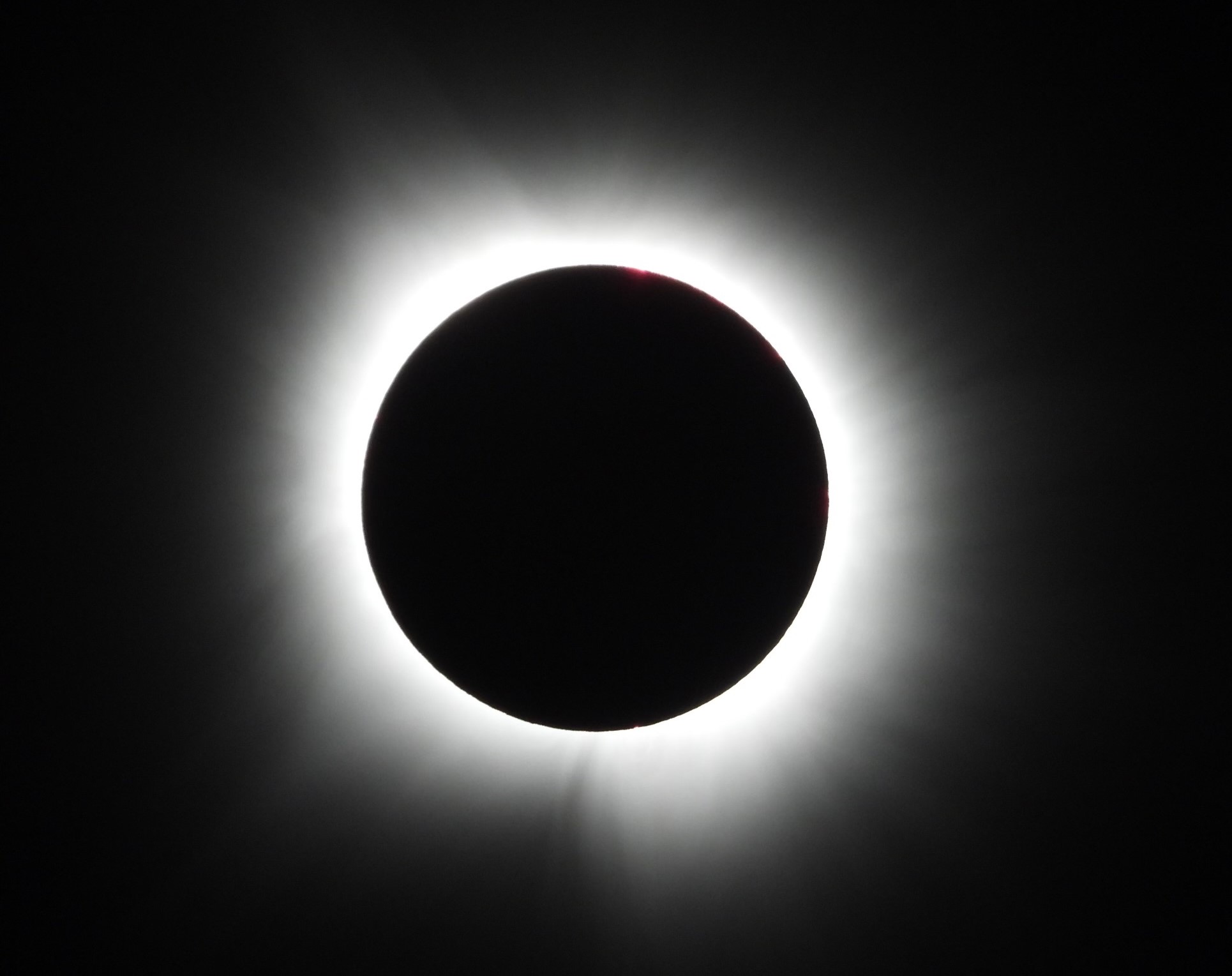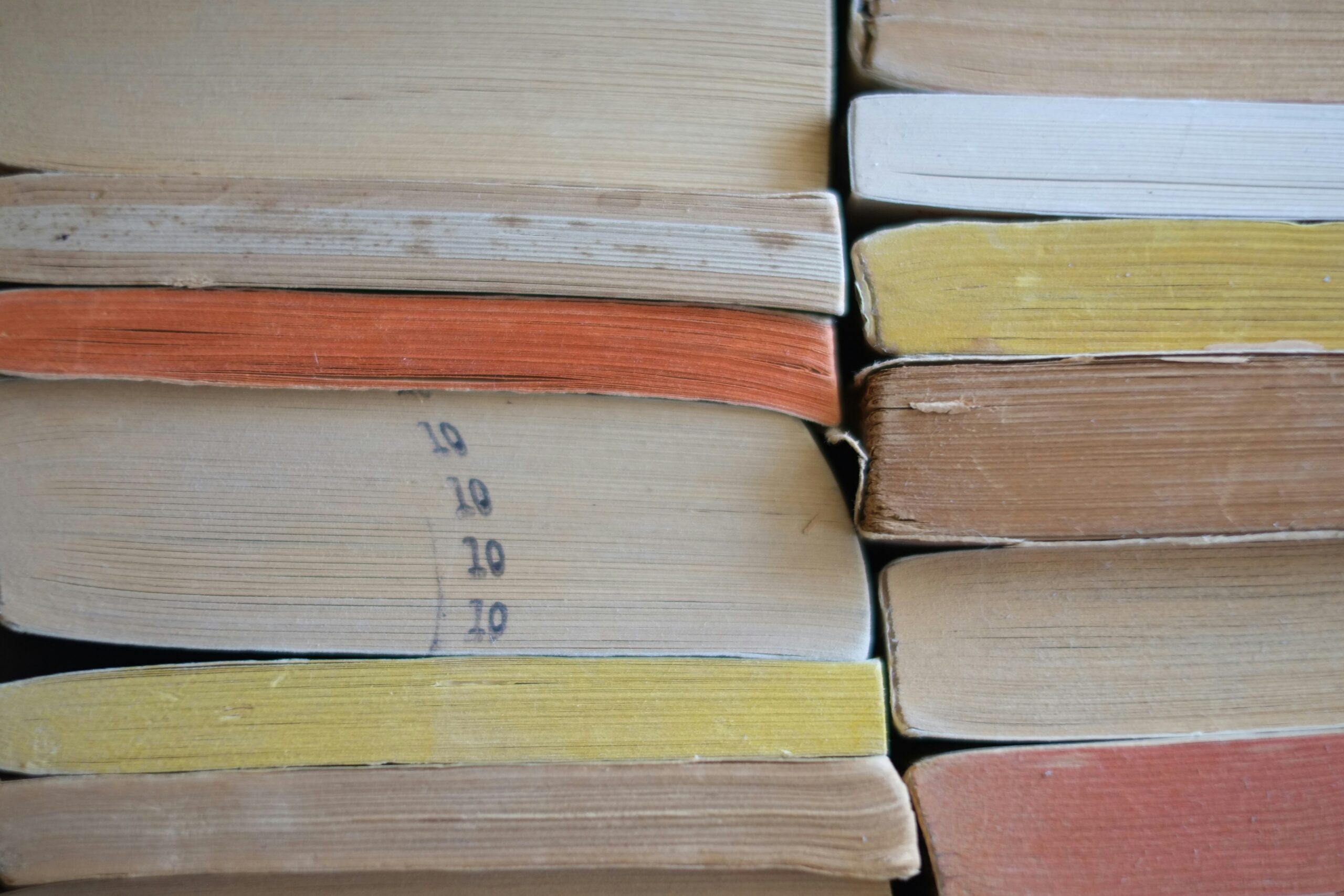Was the Eclipse Anticlimactic?
April 9, 2024


You would think we were planning an expedition to the moon. First I researched ancient and medieval narratives of eclipse, read the scientific explanation of the crimson ring we might see (hydrogen in the chromosphere) and the erratic behavior of wildlife, and got sidetracked by solar wind and the music of the spheres (both of which sound like poetry but surprised us by existing). Then, grinning at the conspiracy theories about Carbondale’s mass sacrifice at totality but genuinely worried about getting trapped for hours in gridlock, we mapped back roads, arranged for someone to let the dog out, and packed eclipse glasses and, lest we starve or die of thirst on the road, a bunch of grapes.
The universe would provide the entertainment, but America was making money on it. There were eclipse t-shirts, last-minute eclipse glasses at scalpers’ prices, eclipse tour buses and private parties. People were slurping down Blackout slush floats, Eclipse donuts, Moon Pies, and time-lapse slid Oreos. If you went online during the eclipse (you know, instead of watching it), you could snag a limited-edition bag of pineapple habanero and black bean spicy gouda SunChips.
I let all that wash over me. I wanted to watch the darkness fall, feel my arms cool and tingle, see gold flare behind a blackened moon, and know that this would not happen again, along this particular trajectory, for roughly four hundred years. By which time the moon might have drifted too far for it to matter, and Earth might have burned itself to a crisp. Right now, our moon was four hundred times smaller in diameter than our sun but four hundred times closer to Earth, a perfect symmetry—and totality was an easy drive from home.
Totality. Just the word feels like an exhale. The reassurance of awe, of completion. The promise of grasping an immensity whole, rather than contenting oneself with the usual sliver. Was it any wonder dentists and plumbers were hanging Closed signs on their doors, families were camping overnight just to be in the right spot, and umbraphiles (shadow lovers) were flying in from France, Australia, India…?

I worried it would be anticlimactic. Crowd-sourced excitement so often is. How could four minutes justify so much hoopla? What if we were not plunged into darkness, but the world was simply, briefly, overshadowed? What if the gigantic ball of superheated plasma that lights our world left without fuss, and its radiant corona, glowing two million degrees Fahrenheit, just looked like a saint’s halo in a Greek Orthodox painting? What if our whopper of a moon—larger than most because a chunk of rock the size of Mars whammed into us 4.5 billion years ago—only looked like an obsidian coaster?
Whatever. We were going to a party at our friends’ house in Ste. Genevieve, and that would be fun no matter what. I would not weep, as the Aztec women did, fearing an eternal darkness scourged by demons. I knew hungry black squirrels were not eating the sun, as the ancients of the Choctaw Nation once believed. I did not need to steal the eclipse’s power and fool someone into thinking I could erase the sun, as Mark Twain suggested. Hellboy would not be using the eclipse to release the Seven Gods of Chaos.

I preferred calmer accounts, like Virginia Woolf’s cigar-smoking train pilgrimage for the 1927 eclipse. Annie Dillard’s more recent, magnificent essay conjured the “saturated, deep indigo” of the sky, the eerie platinum of the grass. But at her eclipse, “the world was wrong,” distorted and disoriented, out of time, life itself ceasing as the familiar world vanished. To me, the world felt finally right, filled with curiosity and awe. Not only were millions of people all, for once, paying attention to the same thing, but it was something uncorrupted by us. Not politics, not big-money sports. Just a brief silence and a gaze upward, marveling at what is revealed when the dazzle is dimmed.
No giraffes galloped in Ste. Gen, panicked by the cosmic occlusion. But a handful of butterflies landed on the low branches of a budding tree and seemed to fall asleep, like good children sent to bed as soon as night falls. By the time we turned back to them, sated with cosmic excitement, they had recovered and flown away, making God knows what sense out of the break in nature’s rhythms.
Or did they know it was not a break? Maybe we projected when we assumed the animals were anxious, while in fact, they recognized that this was yet another cycle, far larger than their own. Birds seemed to sing even louder just before the eclipse, then fall silent. Their daily lives are ordained by the sun’s light, as are ours, but artifice fools us into ignoring the rhythm.
Now, though, people were paying heed. Scientists were flying instruments close to the sun, launching rockets to study changes in our atmosphere. Ham radio operators were beaming signals to study the effect of solar disturbances. Volunteers were observing wildlife, pets, zoo animals, birds, insects; photographing and sketching the shape of the solar disk; listening to the sun’s radio emissions.
The eclipse was not anticlimactic. It was wondrous. Pure and unscripted and uncontrollable, unfolding high above all the merchandising and hype. Not all color drained away; the grass shone even greener as the light dimmed and the cones and rods in our eyes adjusted. Another guest, Mary Anne Braun, used her Skyview app to show us Neptune, just below the sun, and then Saturn, and the Pisces constellation. Her husband, Ray Braun, noticed a pattern of tiny sun crescents in the tree leaves’ dappled shadow. The world felt connected, all of a piece. Just by watching, we were stitching it together.
Read more by Jeannette Cooperman here.





